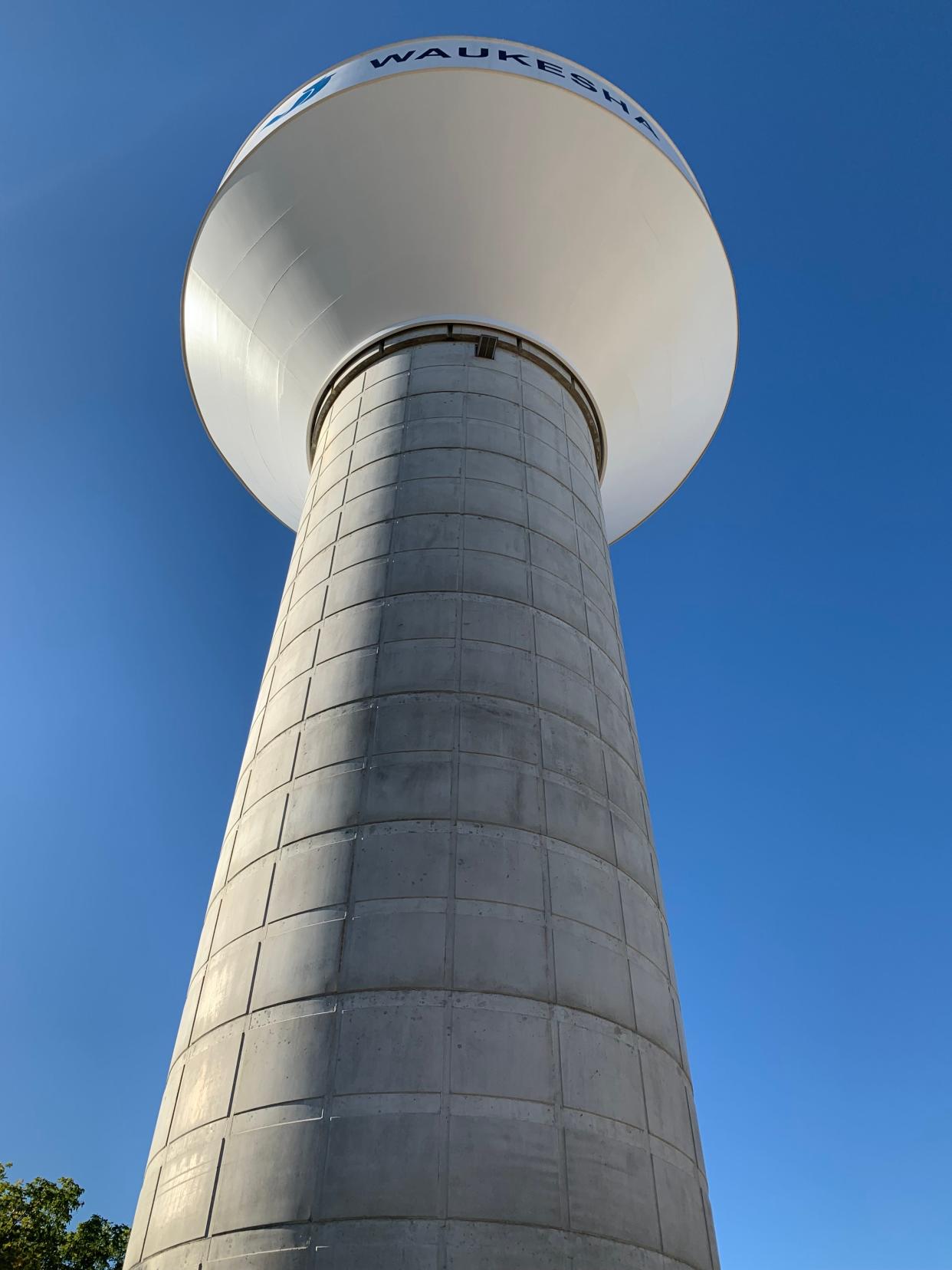Waukesha's lake water is coming. What to know about potential problems and solutions.

WAUKESHA - City residents and businesses this month will join the more than 860,000 people in 16 communities who use Lake Michigan water from the Milwaukee Water Works, but the experience will be all new for 70,000 people.
As with any new experience, it helps for those residents to know what's normal, what's temporary and what should be addressed ahead of time. That's particularly a focus right now, as Waukesha's water transition unfolds in September. What kinds of problems might people experience as the transition is happening, and what should they watch for as the tap turns to the new $286 million infrastructure that makes it possible?
"We have been working hard to minimize any inconveniences for our customers, but there are differences from the current water supply that people should prepare for," Dan Duchniak, general manager of Waukesha Water Utility said.
Discolored water can, and likely will, occur when the transition takes place
The transition does carry one likely manifestation: rusty or discolored water.
"For the average customer, the most likely issue that could occur is discolored water (similar to what can occur during routine annual neighborhood pipe flushing) or changes in the taste or smell," Duchniak said. "These changes are temporary and may occur in some locations but not others or at different times. The water still meets regulatory standards, though we know it is aesthetically unappealing."
Special filtered equipment might clog, but it's preventable
Anything that filters water before you drink or use it could be affected by solids in the pipelines as the water begins to flow.
"To prevent filter clogs, we recommend removing or bypassing your in-home water filtration systems — like the ones used with some refrigerator water dispensers or attached to kitchen faucets — and bypassing reverse osmosis systems and water softeners before the start of the transition," Duchniak said.
It will pass quickly. When the water is clear again, he said to reinstall or reconnect the filters. "You can resume using filters again in a normal manner after the transition or when your water runs clear, typically within a few days," he said.
You can flush your own system as the transition is happening
Among the pieces of advice Waukesha Water Utility has for residents is similar to what plumbers sometimes recommend for when water is turned on in a household after a period when service has been disconnected. Essentially, it involves allowing water to run throughout the household when heavily discolored water becomes evident.
First, customers should remove the faucet screens (aka, aerators) from the ends of their fixtures. Next, run cold water through all those faucets, wide-open and simultaneously, for three to five minutes. While that's happening, flush the toilets two or three times each. After those few minutes, turn off the water faucets, clean the aerators, and reinstall.
A few other precautions might also help during Waukesha's water switchover
While slightly rust-colored water is safe to drink, that doesn't mean it might not cause some other aesthetic problems that you might not want to live with.
Few people like the look of discolored ice, so Waukesha Water Utility suggests customers who have automated ice-making freezers might want to pause making ice until the water is clear. Likewise, washing clothes in discolored water might have less-than-desired results. "If your clothes do end up getting stained, do not put them in the dryer because that can set the stain," Duchniak said, adding that products like Red-B-Gone or Iron Out can help.
Officials remind Waukesha residents to remember why all this is necessary
Duchniak said the water utility and city officials know all this can be annoying and inconvenient, but he also knows the reasons the city undertook the project in the first place.
"Our current water supply is severely depleted and is contaminated with naturally-occurring radium that exceeds federal limits," he said. "City leaders, state regulators and even the governors and premiers of all the Great Lakes states and provinces agreed that it is our only reasonable water supply alternative.
"The switch to Lake Michigan water will ensure that our community has safe and reliable water for the long term," Duchniak added. "And we have been working hard to ensure that the switch goes as smoothly as possible for our customers."
Residents can sign up for updates and find more answers online
Waukesha Water Utility customers can prepare for the transition and sign up for updates and information on other issues using Connect link at www.waukesha-wi.gov or using social media to follow the City of Waukesha as it updates any information. Customers can also find detailed information about the transition and water supply at www.GreatWaterAlliance.com or at www.waukesha-water.com.
Among other things, the sites include information for kidney dialysis patients using home machines, owners of pet fish, reptiles and amphibians concerning water treatment or filters and business owners that treat water for processes or products.
The Milwaukee Journal Sentinel has also addressed common questions, both in May as the final stage of construction was nearing an end and in August as the transition from ground to lake water was approaching. The articles include links to other articles covering details of the 36-mile system.
Waukesha Water Utility staff can also answer questions for those who call 262-521-5272.
Contact Jim Riccioli at (262) 446-6635 or james.riccioli@jrn.com. Follow him on Twitter at @jariccioli.
More: Fox River Trail opens from Brookfield to Pewaukee along historic Milwaukee Road rail route
More: This Waukesha Kwik Trip plans to expand by 1,150 square feet and build a new car wash
Our subscribers make this reporting possible. Please consider supporting local journalism by subscribing to the Journal Sentinel at jsonline.com/deal.
DOWNLOAD THE APP: Get the latest news, sports and more
This article originally appeared on Milwaukee Journal Sentinel: Waukesha's water transition doesn't come without potential problems

